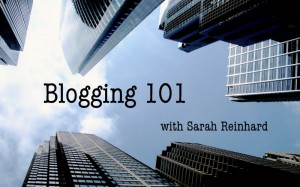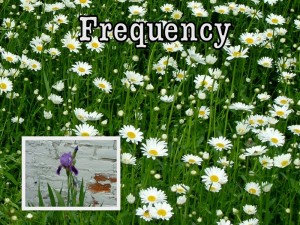A closer look at blogging stats and how to improve them
This is the third installment of my Blogging 101 series. I’ll be posting on alternating Wednesdays here and addressing a few different topics:
- 3 questions you should consider
- The simple steps to getting a blog
- A closer look at stats and how to improve
- Four strategies to stay sane
Today’s topic covers a closer look at stats and how to improve them.
Sometimes, when I get too busy numberizing, I start to wonder if it’s worth it. I mean, why am I here, the small fish in the big pond? That’s its own discussion, really, and I’ve torn into it again and again and again.
So let’s talk stats, despite my reluctance to get all neurotic.
What are stats?
Statistics, including how many people are viewing your site, what posts are most popular, and what color you should wear. There are a variety of different programs and add-ons for this, and we’ll cover stats in more depth in a future post in this series.
SEO refers to search engine optimization, or “how you get people to find you,” although that makes it sound more important than it is. Wait, it IS important. But it can also be distracting. Just like stats.
How can stats help a blogger improve?
They can be a guide of sorts, introducing you to your audience and what they like to read of your writing. You can gain insight into where people are finding your posts and clicking from (i.e., from a link at someone else’s blog or an aggregator site).
They can also show you what topics and posts are popular. You can leverage this information in a number of ways. You can use it to do more of the same or to grow beyond what’s getting attention. You can
They can be misleading. Sometimes, I have a lot of traffic on a post, and I come to find out that I have an image named “mother” during the first week of May and wow, there it is for everyone to find via Google Images. Then again, back when my most popular post of all times was about a huge family tragedy, I took it to mean that people had morbid curiosity and only came to visit my blog because there was blood on the floor, so to speak. (A friend set me straight when I voiced that and said, “Wow, what a caring community that they came and “visited” when you most needed prayer!”)
What are some ways to improve your stats?
Improve your post titles. On the one hand, you’re telling people what to expect. Maybe that means you’re cutesy and clever. Maybe it means you’re straightforward. Maybe it means you’re a mix of everything. (Can you tell I have mixed feelings about this?)
Make sure you are interacting with the readers you already have. Respond to their comments, invite them to leave comments, engage them. If you have people who read and comment via a social network (i.e., Facebook or Twitter), engage. Talk. Share.
Interact elsewhere online, including reading other blogs and commenting. For me, this ALSO means a few of my social networking circles, too. In the last six months alone, this has really changed who’s coming to my blog and how they are responding to me.
Read the blogging blogs and decide for yourself whether to take their advice. Yeah, I have mixed opinions. But I read it, in part because I’m interested and in part because I’m a bloggy-geeky type.
Write for your audience…and for yourself. Guest posting is a way to blog elsewhere and get known (but do it well!). There’s a temptation to turn into “more of the same” and not grow. There’s also a temptation to never pay attention to what resonates. There’s a fine line you walk (or type?) as a blogger…be aware of that
Get known for something, differentiate yourself. Easier said than done, sometimes (often?). I would argue that it takes years, but maybe if you’re focused it doesn’t have to. My experience is that it takes time to get good. You can put those hours in now or over the next few months, years, whatever.
How do you keep your perspective?
Be realistic. Stats are numbers, and numbers are important, to a point. They are useful, to a point. They are a tool to be used, to a point. If you have any sort of tendency toward obsessing or splitting hairs, maybe stats won’t be helpful. (I may or may not be speaking from experience…)
Set goals, have high standards, and don’t settle for less than the best from yourself. I say this at the risk of sounding like I’m in a high school leadership class, I know. Even so, there’s something to be said for living in the present while aiming for the future. Sometimes.
Revisit your blogging purposes. They can and do change over time. When you find yourself frustrated with your stats, consider whether it’s time for a change—in scenery, in approach, in something.
Blog traffic is NOT the same as book sales. Since we’re an audience of authors, this is a point you should remember. Blog traffic can help. And being a constant commercial for your book is annoying and won’t help anything.






